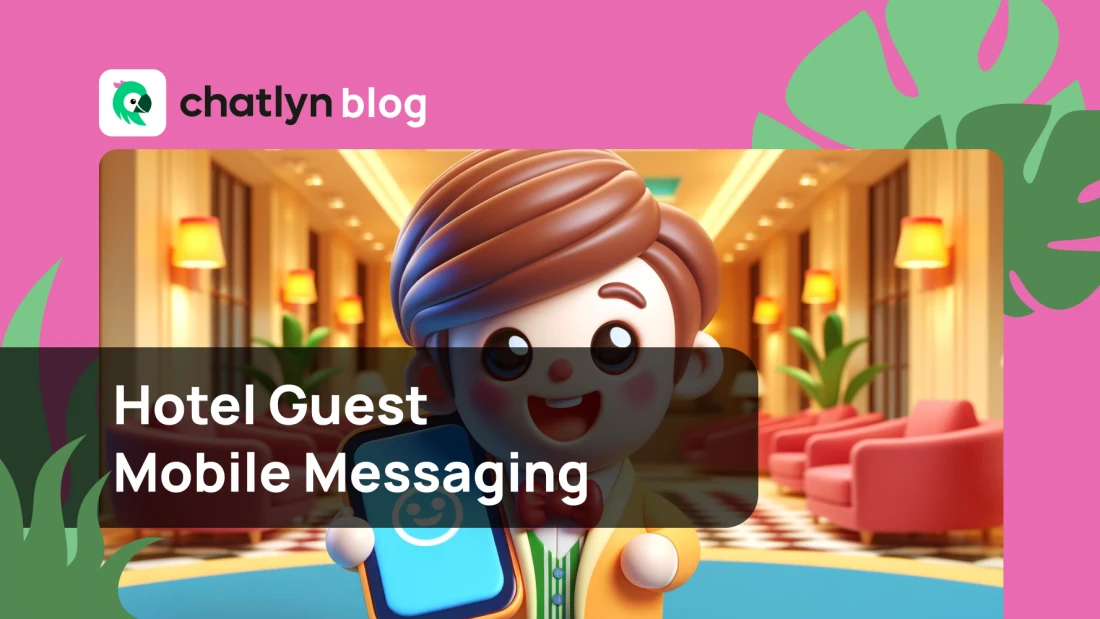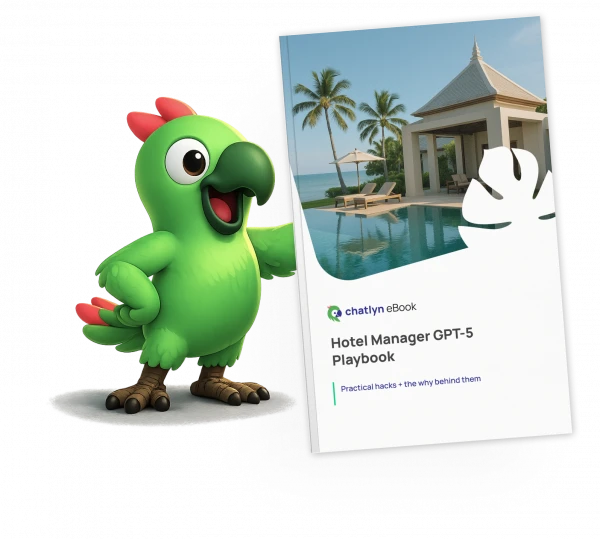In today's dynamic hospitality landscape, effective communication with hotel guests has become more crucial than ever. Leveraging mobile messaging platforms has emerged as a cornerstone strategy for hotels aiming to enhance guest experiences and streamline communication processes. This blog post delves into the multifaceted realm of hotel guest mobile messaging, exploring its evolution, strategies, and best practices for optimal implementation.
Introduction to Hotel Guest Mobile Messaging
Exploring the Evolution of Guest Communication: Guest communication in the hospitality industry has evolved significantly over the years. Historically, hotel communication relied on physical notices, reception desks, and landline telephones. However, with the proliferation of smartphones and digital communication channels, guests now expect seamless interactions via mobile messaging platforms.
Understanding the Role of Mobile Messaging Platforms: Mobile messaging platforms play a crucial role in modern hotels by providing a convenient and efficient way to communicate with guests. Notably, research indicates that 70% of travelers prefer messaging over traditional methods of communication. This shift underscores the importance of embracing mobile messaging to meet guest expectations and enhance overall satisfaction.
How Can I Send a Message to a Hotel Guest?
Exploring the Various Channels for Hotel Guest Messaging: Hotels have a myriad of channels for communicating with guests, each with its unique advantages and considerations. For instance, while SMS offers direct and immediate communication, messaging apps like WhatsApp and Facebook Messenger provide a more interactive and engaging platform for guest interactions.
Leveraging Automated Messaging for Seamless Communication: Automated messaging is revolutionizing guest communication in the hospitality industry. By leveraging AI-powered chatbots, hotels can provide instant responses to common guest queries, such as booking inquiries, room service requests, and check-in/out procedures. This not only enhances guest satisfaction but also streamlines operational efficiency.
Crafting the Best Welcome Message for Hotel Guests
Understanding the Importance of the First Interaction with Guests: The welcome message sets the tone for the guest's entire stay and can significantly impact their overall experience. Studies show that personalized welcome messages can increase guest satisfaction by up to 20%. Therefore, hotels must craft warm, personalized messages that resonate with guests from the moment they arrive.
Tips and Examples for Creating Engaging Welcome Messages: A well-crafted welcome message should not only greet guests by name but also provide useful information to enhance their stay. For instance, including details about hotel amenities, local attractions, and dining options can help guests feel more informed and welcome.
Enhancing Guest Experience Messaging: Strategies and Best Practices
Utilizing Personalization to Delight Guests and Foster Loyalty: Personalized messages make guests feel valued and appreciated, leading to increased satisfaction and loyalty. Hotels can leverage guest data such as past stays, preferences, and special occasions to tailor their messages and create meaningful connections with guests.
Leveraging Guest Feedback to Continuously Improve Messaging Practices: Guest feedback is a valuable source of insights for hotels looking to improve their messaging practices. By soliciting feedback through surveys, reviews, and direct communication, hotels can identify areas for improvement and make adjustments to better meet guest needs and expectations.
Writing an Effective Check-Out Message for Hotel Guests
Importance of Providing Clear Instructions and Expressing Gratitude: The check-out message is the final communication between the hotel and the guest and is an opportunity to express gratitude for their stay and provide any necessary instructions for check-out. It should be concise, informative, and leave guests with a positive impression of their experience.
Sample Check-Out Messages to Ensure a Smooth Departure Experience:
Here are some examples of effective check-out messages:
- "Thank you for choosing Sunset Oasis Resort for your stay! We hope you had a wonderful time with us. Please remember to check out by 11:00 AM, and don't hesitate to let us know if you need any assistance. Safe travels!"
- "It's time to say goodbye, John. We hope you enjoyed your stay with us and that we exceeded your expectations. Please ensure you've settled any outstanding charges and returned your keycard before departing. We look forward to welcoming you back soon!"

Attracting Customers Through Compelling Messaging
Utilizing Messaging Platforms to Showcase Hotel Amenities and Offers: Messaging platforms offer hotels an opportunity to showcase their amenities, promotions, and special offers to attract potential customers. By crafting compelling messages that highlight the unique features of the hotel and appeal to the interests of the target audience, hotels can drive bookings and increase revenue.
Strategies for Creating Attention-Grabbing Messages to Attract Customers: To create attention-grabbing messages, hotels should focus on highlighting their unique selling points, offering exclusive deals and discounts, and creating a sense of urgency to encourage immediate action.
Implementing an Automated Messaging System: Benefits and Considerations
Understanding the Efficiency Gains and Cost Savings of Automated Messaging: Automated messaging systems offer hotels a cost-effective solution for managing guest communication and streamlining operations. By automating routine tasks such as reservation confirmations, check-in reminders, and post-stay surveys, hotels can save time and resources while providing a seamless guest experience.
- Key Features to Look for in Hotel Guest Messaging Software: When choosing a hotel guest messaging software, hotels should look for features such as:
- Integration with existing hotel systems, such as property management systems (PMS) and customer relationship management (CRM) platforms. Customization options for tailoring messages to specific guest segments and preferences.
- Analytics and reporting capabilities for tracking the performance of messaging campaigns and identifying areas for improvement.
The Impact of Messaging Platforms on Guest Satisfaction and Loyalty
Insights from Studies on the Relationship Between Communication and Guest Experience: Several studies have shown that effective communication plays a crucial role in guest satisfaction and loyalty. For example, a study conducted by a leading hospitality research firm found that hotels that implemented automated messaging systems saw a significant increase in guest satisfaction scores and repeat bookings.
Case Studies Demonstrating the Positive Impact of Mobile Messaging on Hotel Performance: Numerous case studies have highlighted the positive impact of mobile messaging on hotel performance. For instance, a case study conducted by a renowned hotel chain found that hotels that utilized a guest messaging platform saw a 20% increase in guest engagement and satisfaction.
Incorporating AI Tools for Hotels and WhatsApp Ecommerce Chatbot
Integrating AI tools for hotels, such as the best AI hotel chatbot, can significantly increase hotel revenue. By leveraging AI-powered chatbots, hotels can provide personalized recommendations, assist with bookings, and offer tailored promotions, enhancing the overall guest experience and driving revenue growth. Similarly, implementing WhatsApp ecommerce chatbot functionalities can streamline guest interactions and facilitate seamless transactions, further enhancing guest satisfaction and loyalty.
chatlyn, our advanced guest messaging platform, offers a range of features perfectly suited for the hospitality industry. From automated messaging to personalized guest interactions, chatlyn empowers hotels to deliver exceptional guest experiences while streamlining communication processes. With chatlyn, hotels can enhance guest satisfaction, drive loyalty, and increase revenue—all through the power of messaging.


